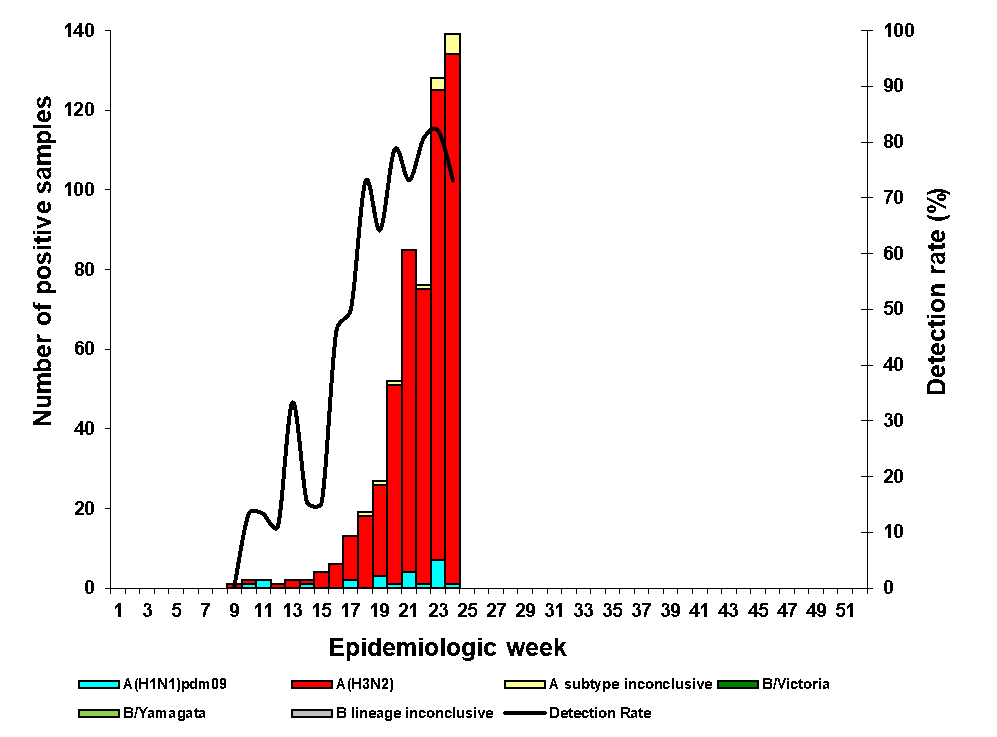The 2019 South African influenza season, which started towards the end of April, is ongoing. Transmission of influenza measured using the Viral Watch programme and impact measured using the pneumonia surveillance programme have both reached high levels. Levels of transmission and impact are determined by the Moving Epidemic Method (a sequential analysis using the R Language) by comparing observed levels of influenza to those seen in previous years. To date, the majority 711/783 (91%) of influenza positive samples for this season, detected by three surveillance programmes, have been identified as influenza A(H3N2). Influenza A(H3N2) is one of the three seasonal influenza viruses prevalent in human populations. Download the latest NICD influenza surveillance report
Influenza cases in schools
As is expected during the influenza season, there has been a marked increase in cases of influenza in the community as well as people seeking care for influenza-like illness at health care facilities. There have been a number of clusters of influenza cases in schools, which is not uncommon as children are important transmitters of influenza. Most government schools are now on holiday, so we expect to see reduced numbers of school clusters going forward.
Influenza in school-age children rarely causes severe complications unless they have underlying conditions associated with an increased risk of severe illness such as lung disease or heart disease. If a school-going child has symptoms of influenza (sudden onset of cough, fever, body pain with or without other respiratory symptoms) they should remain at home, rest and take plenty of fluids. If danger signs such as chest pain or shortness of breath are noted or underlying conditions are present, medical attention should be sought. .Read further information on influenza, advice for parents and frequently asked questions here.
Influenza vaccination
Influenza vaccine remains the primary means for preventing seasonal influenza infection. The vaccine should ideally be administered before the influenza season from March to April. Although we are in the midst of the influenza season, it is not too late to vaccinate, especially if you have an underlying condition which increases your risk of severe illness. This is because most years more than one strain of influenza circulates during the season.
The annual seasonal influenza vaccine contains strains corresponding antigenically as closely as possible to the 3 seasonal influenza strains prevalent in human populations: influenza A(H1N1)pdm09, influenza A(H3N2) and influenza B. A protective antibody response takes about 2 weeks to develop therefore the vaccine cannot prevent infection that may already be incubating or acquired during that period.
Groups at increased risk of severe complications of influenza include:
- Pregnant women
- HIV-infected people
- People with chronic illnesses or conditions like diabetes, lung disease, tuberculosis, heart disease, renal disease and obesity
- The elderly (65 years and older)
- Children less than 5 years old
These groups should be prioritized to receive the vaccine.
Number of positive samples by influenza types and subtypes and detection rate* from the Viral Watch programme, South Africa, 2019

Inconclusive: insufficient viral load in sample and unable to characterise further
Patients known to have acquired influenza abroad or from contact with travellers are not included in the epidemic curve.